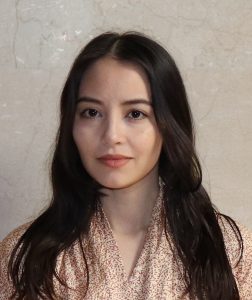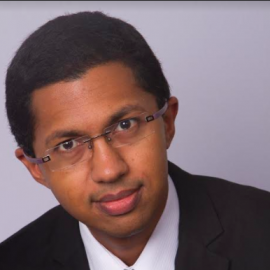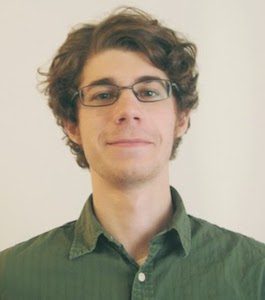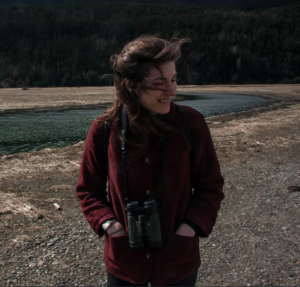Masters Students (MA in STS and Research Streams)
Sarah Kamal is an MA student in Science and Technology Studies at UBC. A former development worker, her interests span media reconstruction, gender, community resilience, and forced migration. She is involved with BC organizations at the forefront of climate migration practice and policy in Canada, and is curious about how dominant and non-dominant knowledge systems interact in evacuation and relocation planning in the context of climate change.
I have a BA in English and German from UBC and am currently pursuing an MA in English Literature with a research designation in STS. Broadly, I’m very inspired by the work of Stephen Jenkinson, a veteran of the Canadian palliative care counselling industry, life’s lyricist, an activist, an elder…if you don’t know him, I recommend looking him up. More specifically: I’m working (maybe?) on the intersections between protracted and sudden death in the life and fiction of Virginia Woolf, as well as the potential damage of the patient-centered care model in terms of dying people. To anyone willing to humour me—I’d love to talk to you about how you feel about the fact that you're going to die. Please do reach out!
I am a certified yoga instructor and have both a horse and a cat. I’m also pursuing training as a birth doula and maybe also a death doula. I’m very interesting.
PhD Students (Research Streams)

Raquel Baldwinson
is a Liu Scholar at the Liu Institute for Global Issues and a doctoral candidate in the Department of English Language and Literature. Through the support of the Killam Doctoral Scholarship and the Friedman Award for Scholars in Health, Baldwinson completed a four-year Visiting Fellow appointment in the Department of History of Science at Harvard University.
Baldwinson's dissertation, "Global Health Doubt: Belief and the Grammars of Global Health," tells the story of how, at the turn of the new millennium, societies were presented with a new grammar for social action called “global health”—but publics did not “believe” in it. Baldwinson theorizes that, just as global climate change efforts have been obstructed by a condition of denial, global health efforts have been obstructed by a condition of doubt.
 Kurian’s primary academic interests are Neo-Victorian studies and STS. He is interested in the distinctions between science and pseudoscience and his thesis will investigate the effects of the rehabilitation of Victorian technoscience in Steampunk fiction. He is also interested in the study of ignorance creation and how the depiction of pseudoscientific technofantasy in Steampunk can be theorized in relation to agnotology.
Kurian’s primary academic interests are Neo-Victorian studies and STS. He is interested in the distinctions between science and pseudoscience and his thesis will investigate the effects of the rehabilitation of Victorian technoscience in Steampunk fiction. He is also interested in the study of ignorance creation and how the depiction of pseudoscientific technofantasy in Steampunk can be theorized in relation to agnotology.
 Kinley studies the politics of the environmental sciences and the political theory of STS. His dissertation is on the democratization of expert authority, particularly in the context of biodiversity conservation.
Kinley studies the politics of the environmental sciences and the political theory of STS. His dissertation is on the democratization of expert authority, particularly in the context of biodiversity conservation.
 Bianca Crewe is a PhD student in the Department of Philosophy. Her interests cluster around epistemology construed as a theory of the conditions under which objective knowledge is possible, specifically in the neo-Kantian tradition in the history and philosophy of science. She works on questions surrounding the conceptual frameworks that structure how we know, as manifested across disciplines, including the history of analytic philosophy, feminist epistemologies of science, and continental and post-structuralist theory.
Bianca Crewe is a PhD student in the Department of Philosophy. Her interests cluster around epistemology construed as a theory of the conditions under which objective knowledge is possible, specifically in the neo-Kantian tradition in the history and philosophy of science. She works on questions surrounding the conceptual frameworks that structure how we know, as manifested across disciplines, including the history of analytic philosophy, feminist epistemologies of science, and continental and post-structuralist theory.
 Aisha is a current PhD student in the School of Kinesiology. She is deeply interested in the history of culture, particularly in medicine and the body. Her current research considers how body classification systems were used throughout the 20th century to ‘make up’ people, to foster specific understandings of human evolution and variation, and quite often to establish discriminatory beliefs about race and gender.
Aisha is a current PhD student in the School of Kinesiology. She is deeply interested in the history of culture, particularly in medicine and the body. Her current research considers how body classification systems were used throughout the 20th century to ‘make up’ people, to foster specific understandings of human evolution and variation, and quite often to establish discriminatory beliefs about race and gender.
